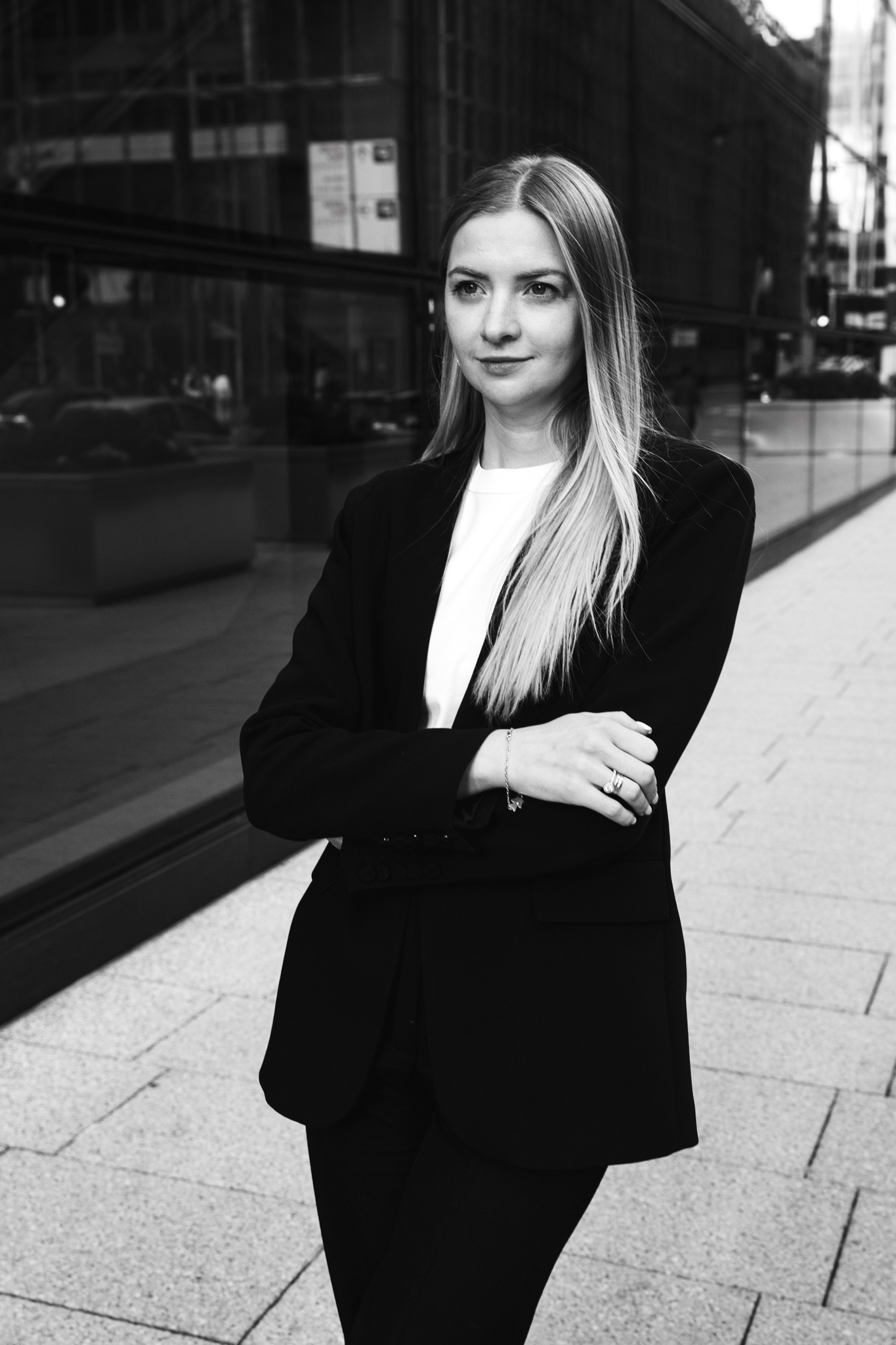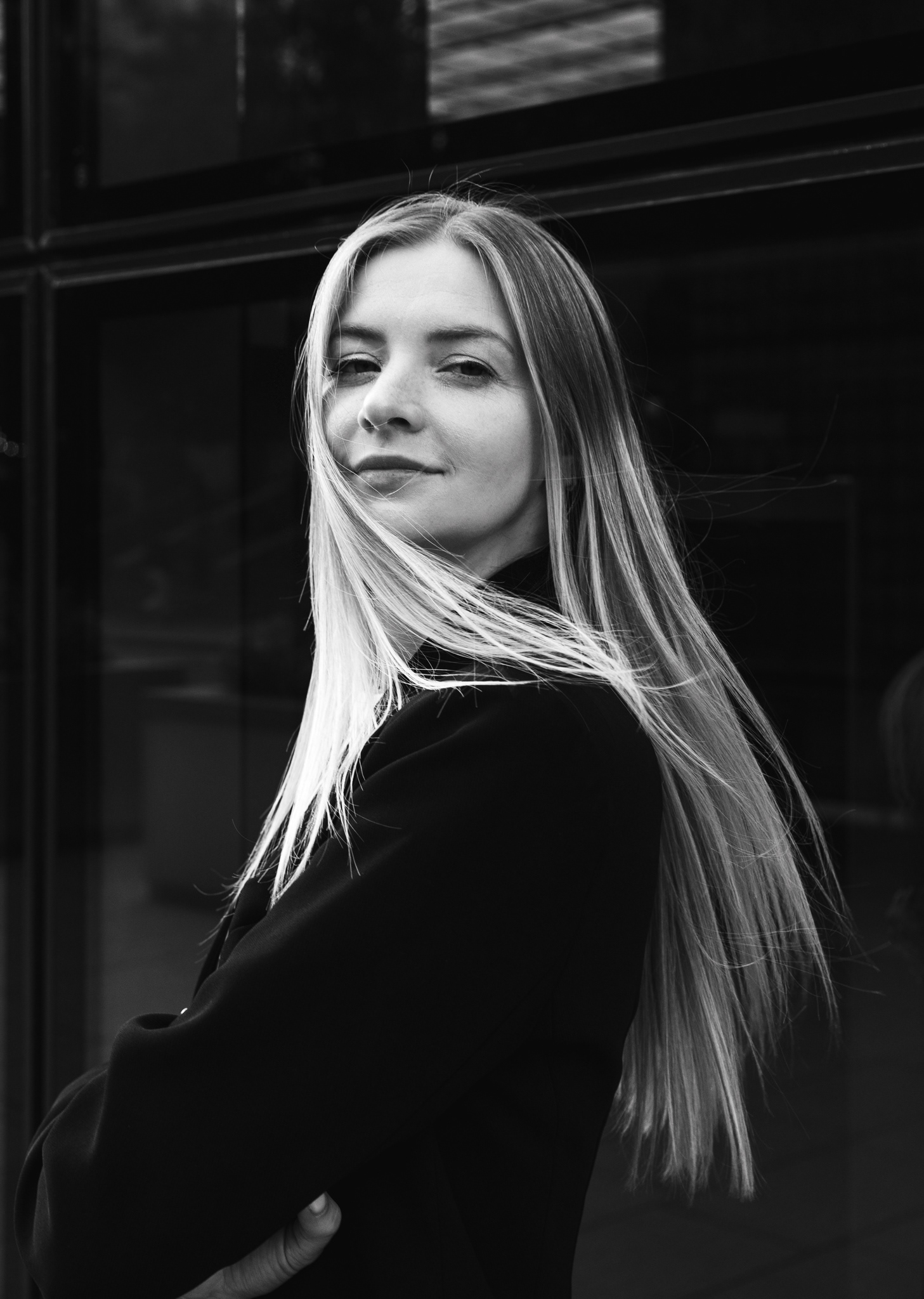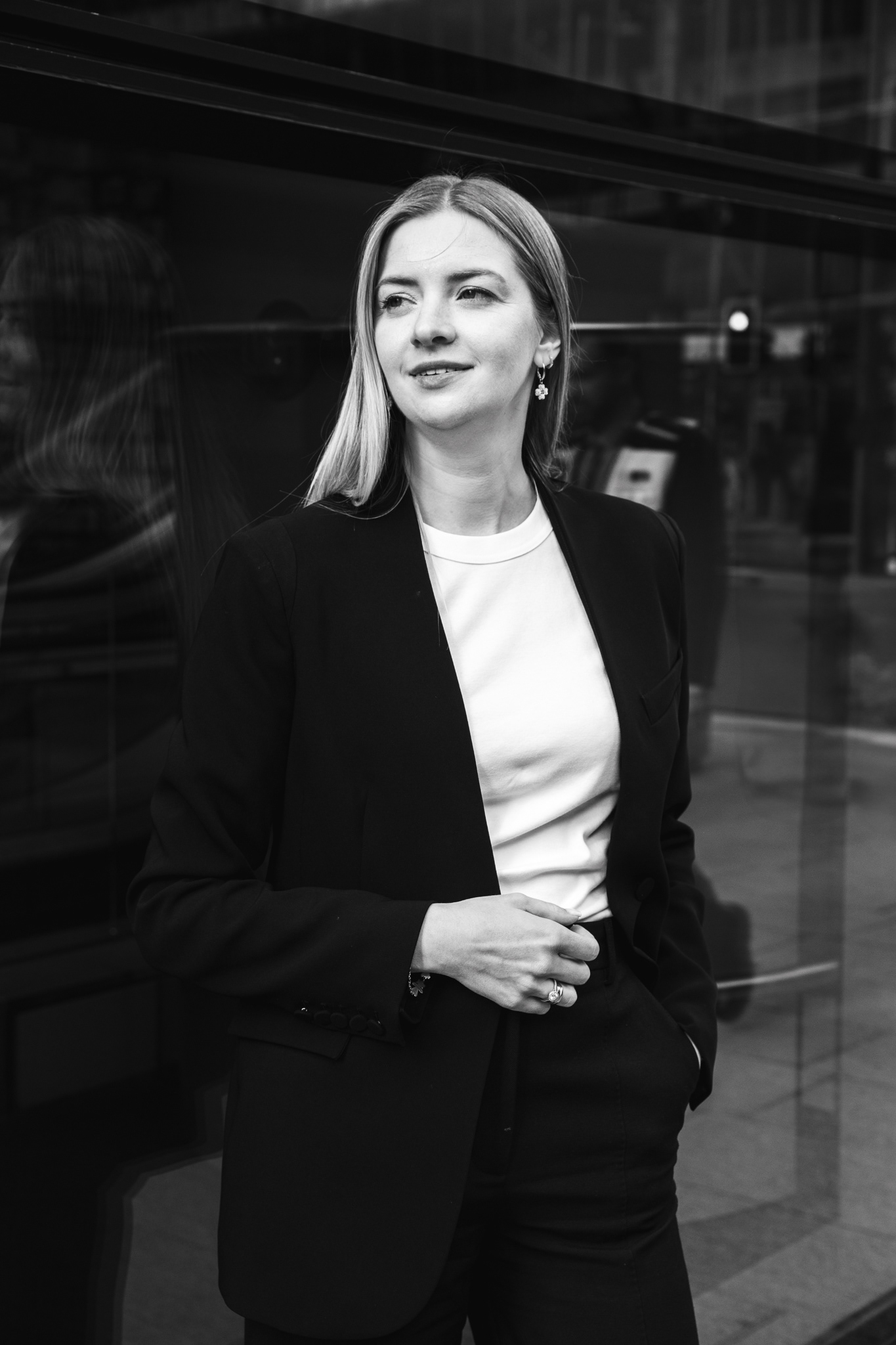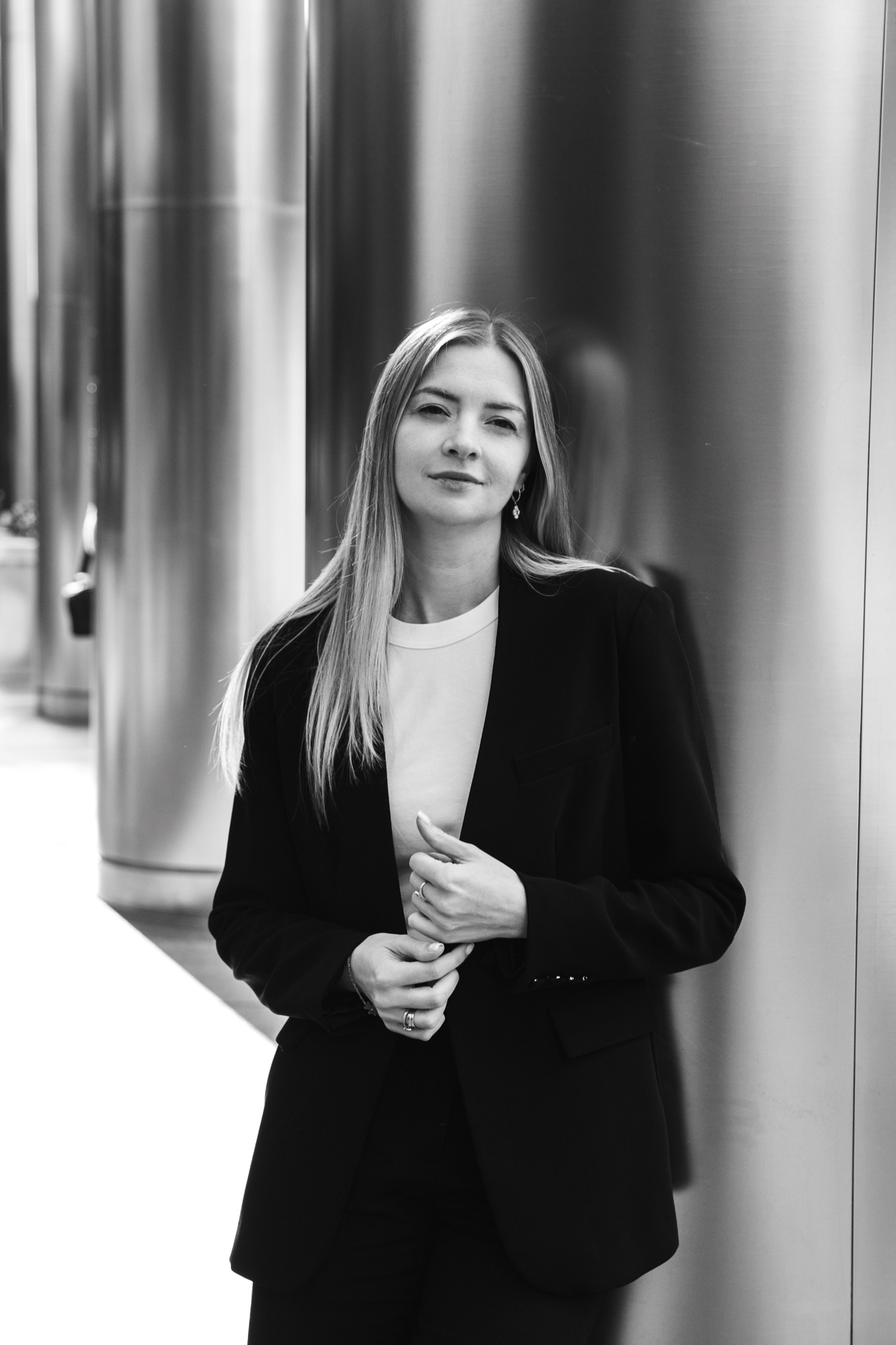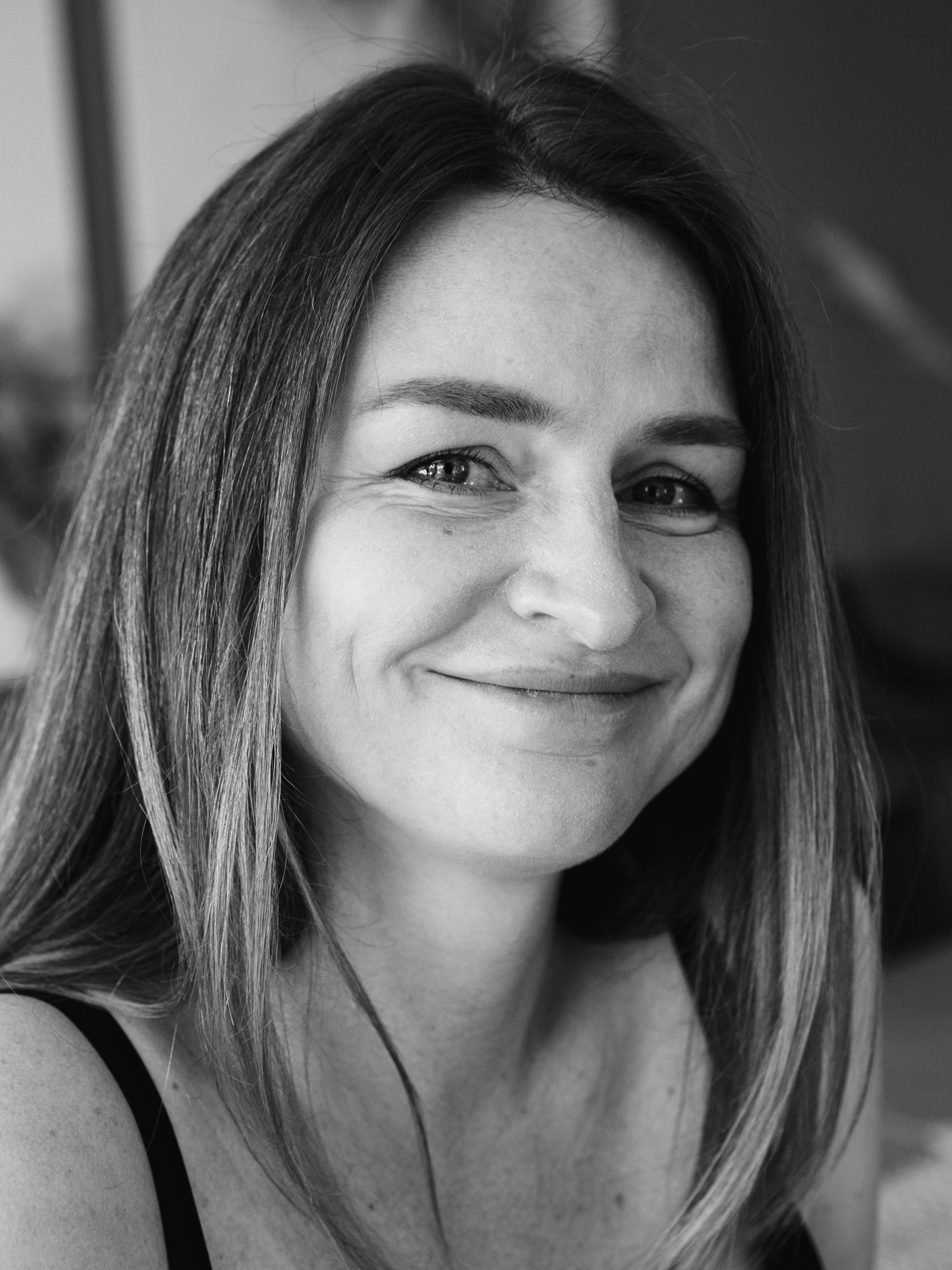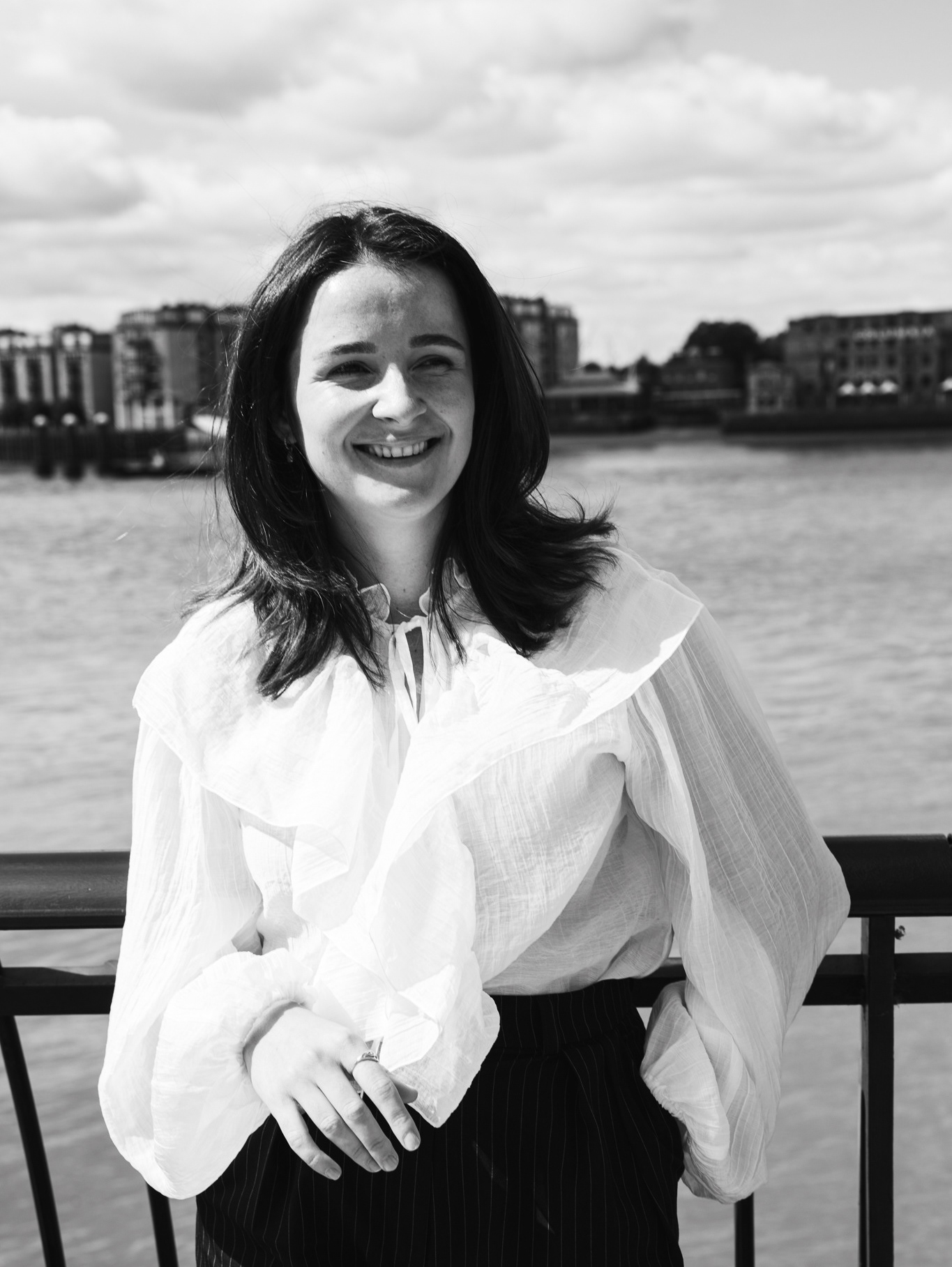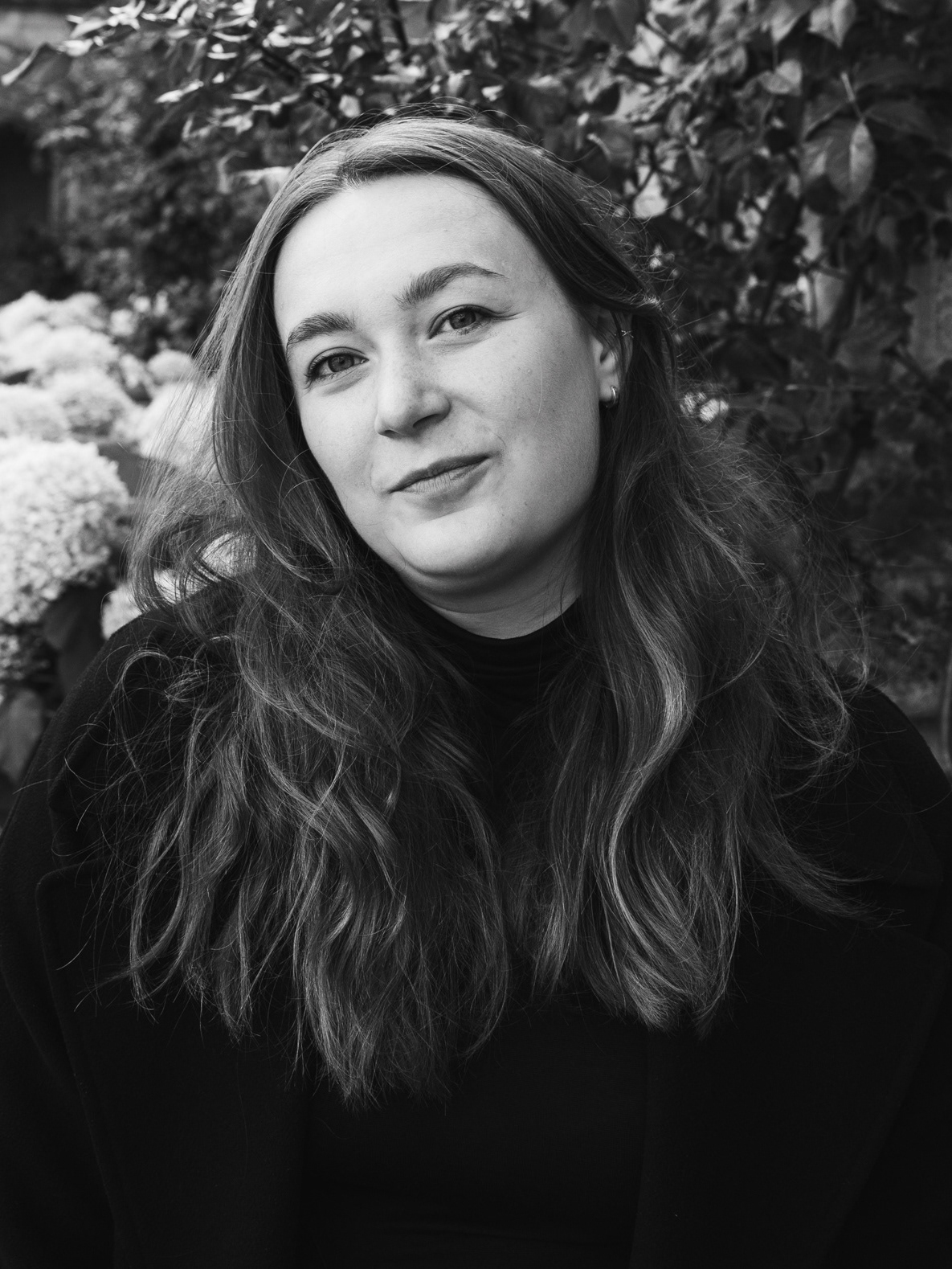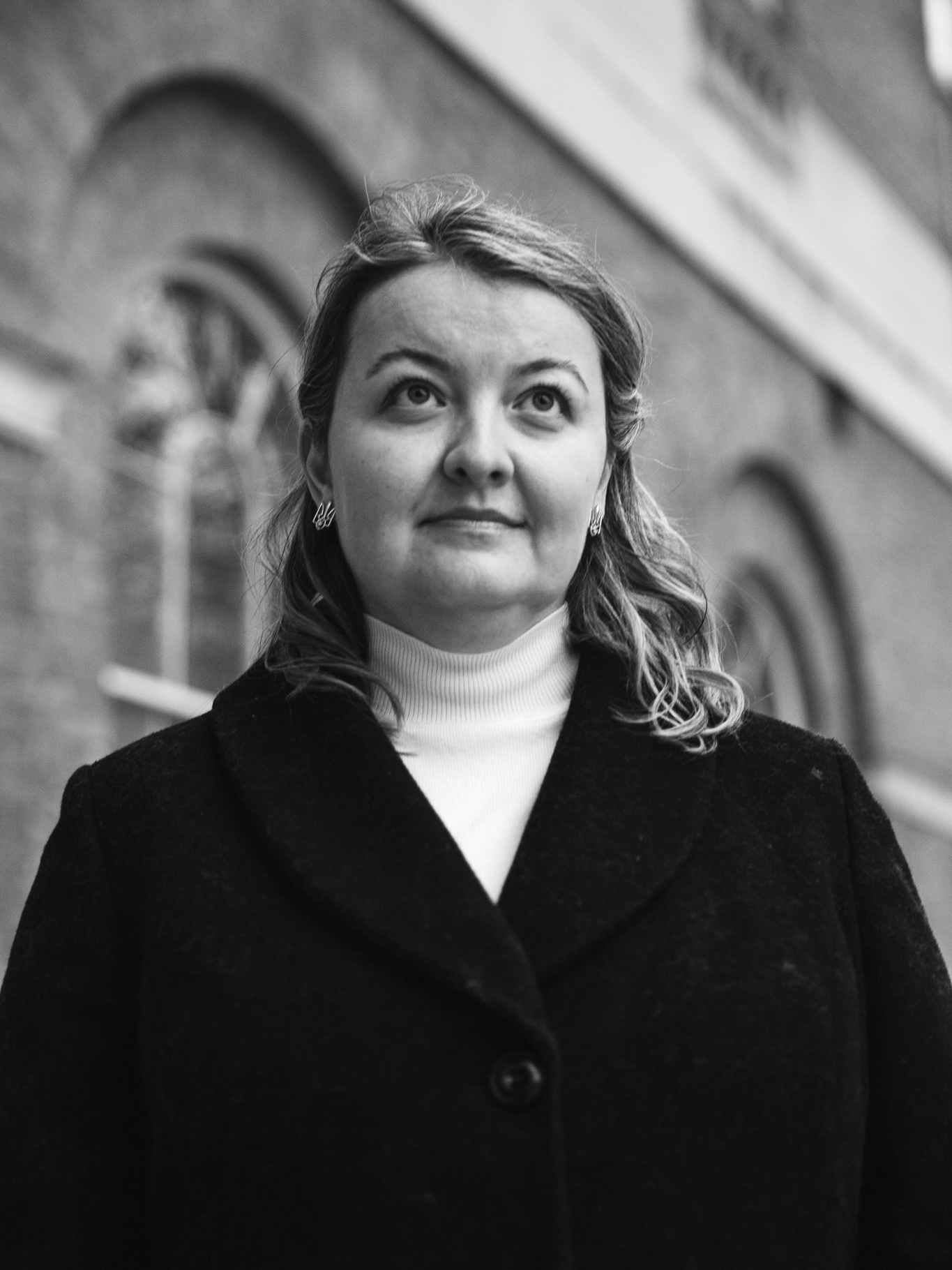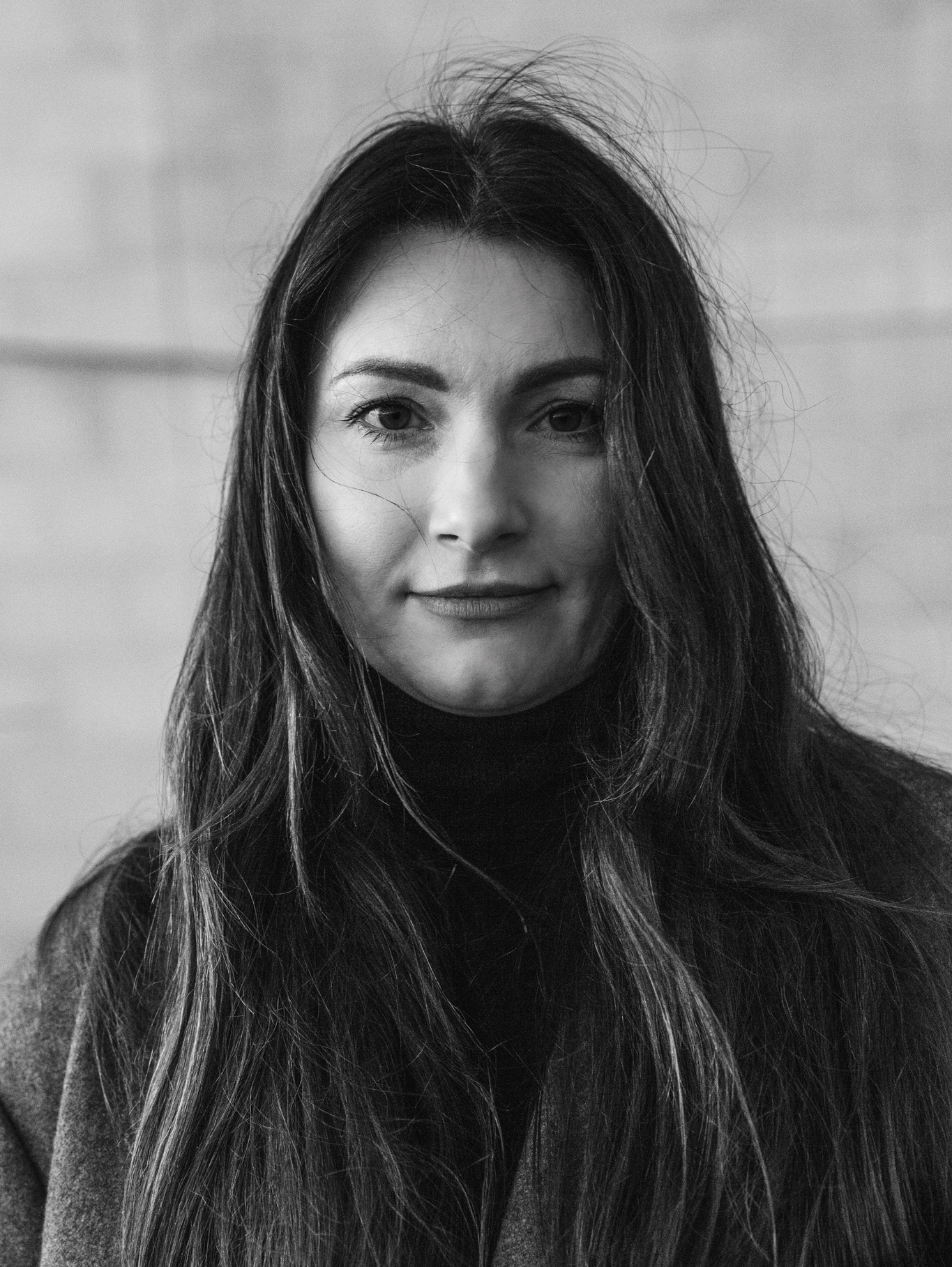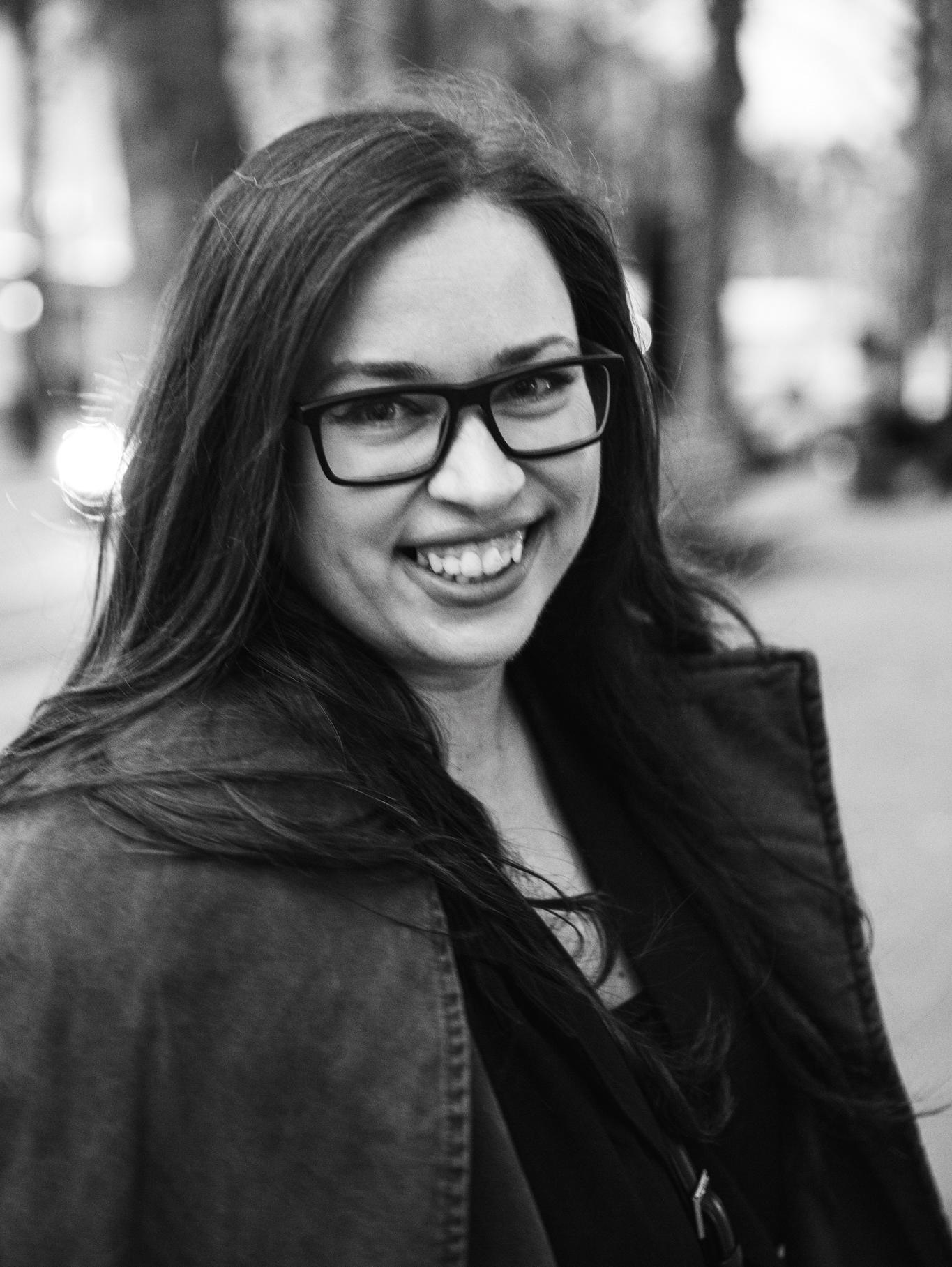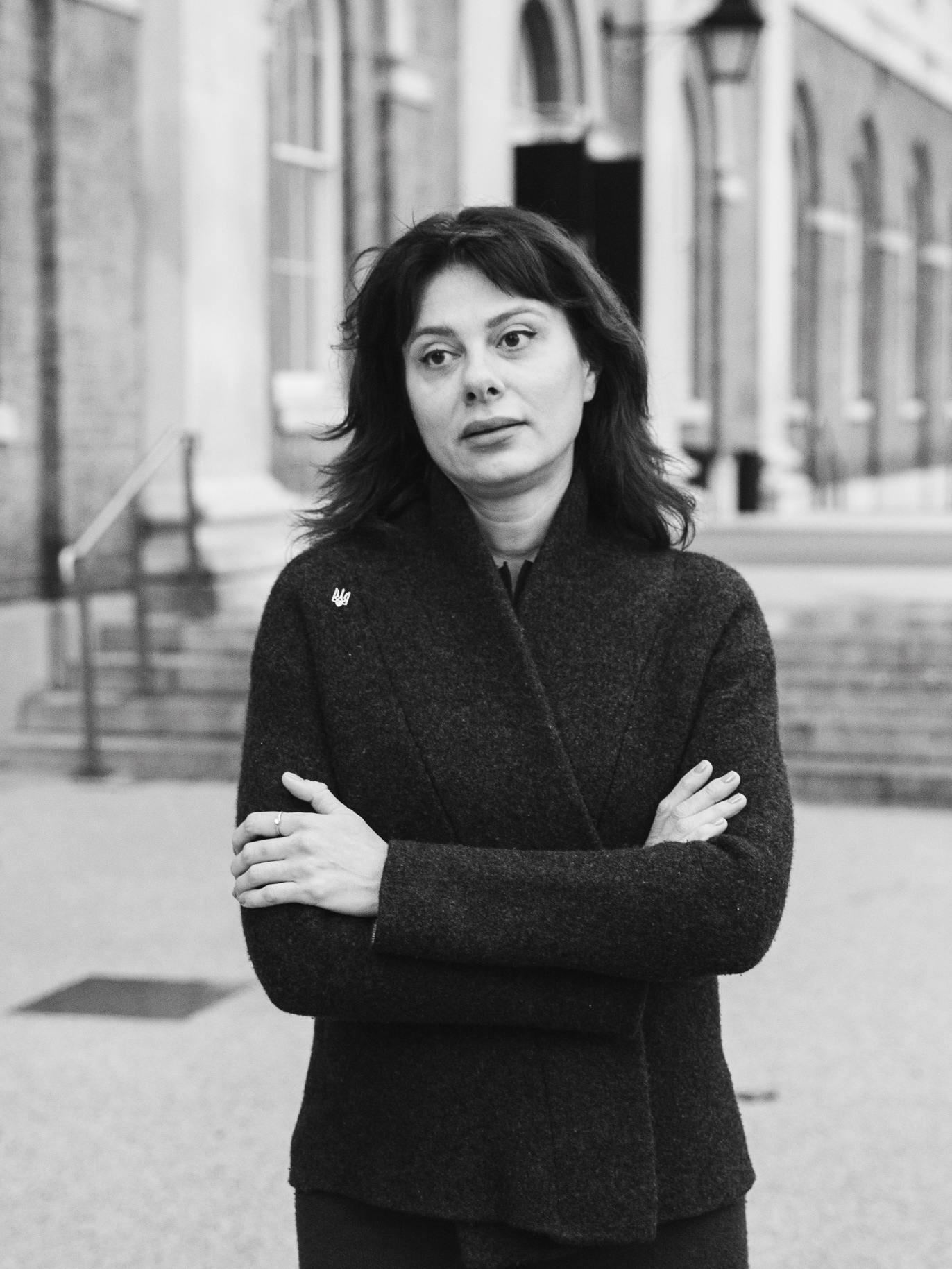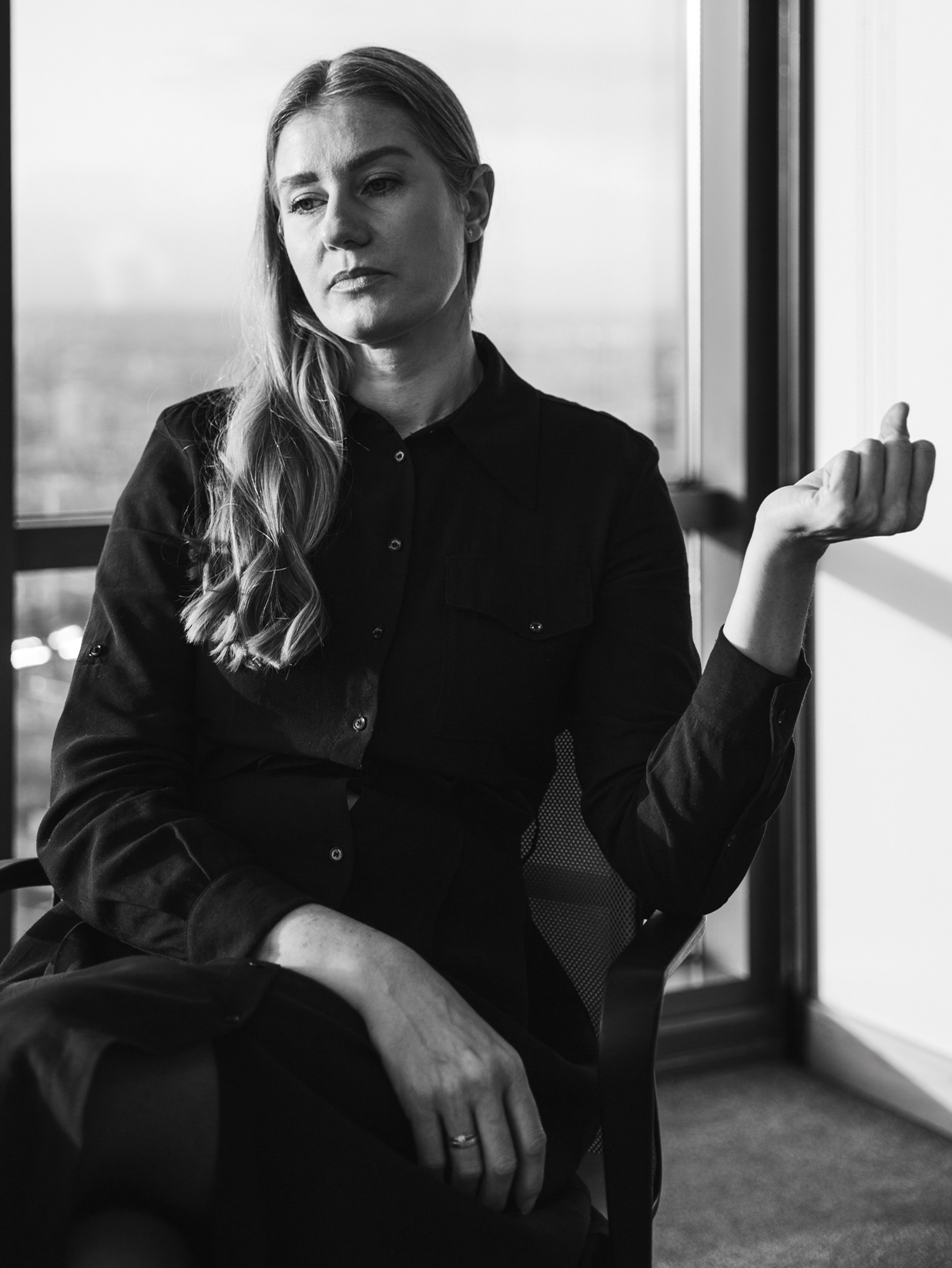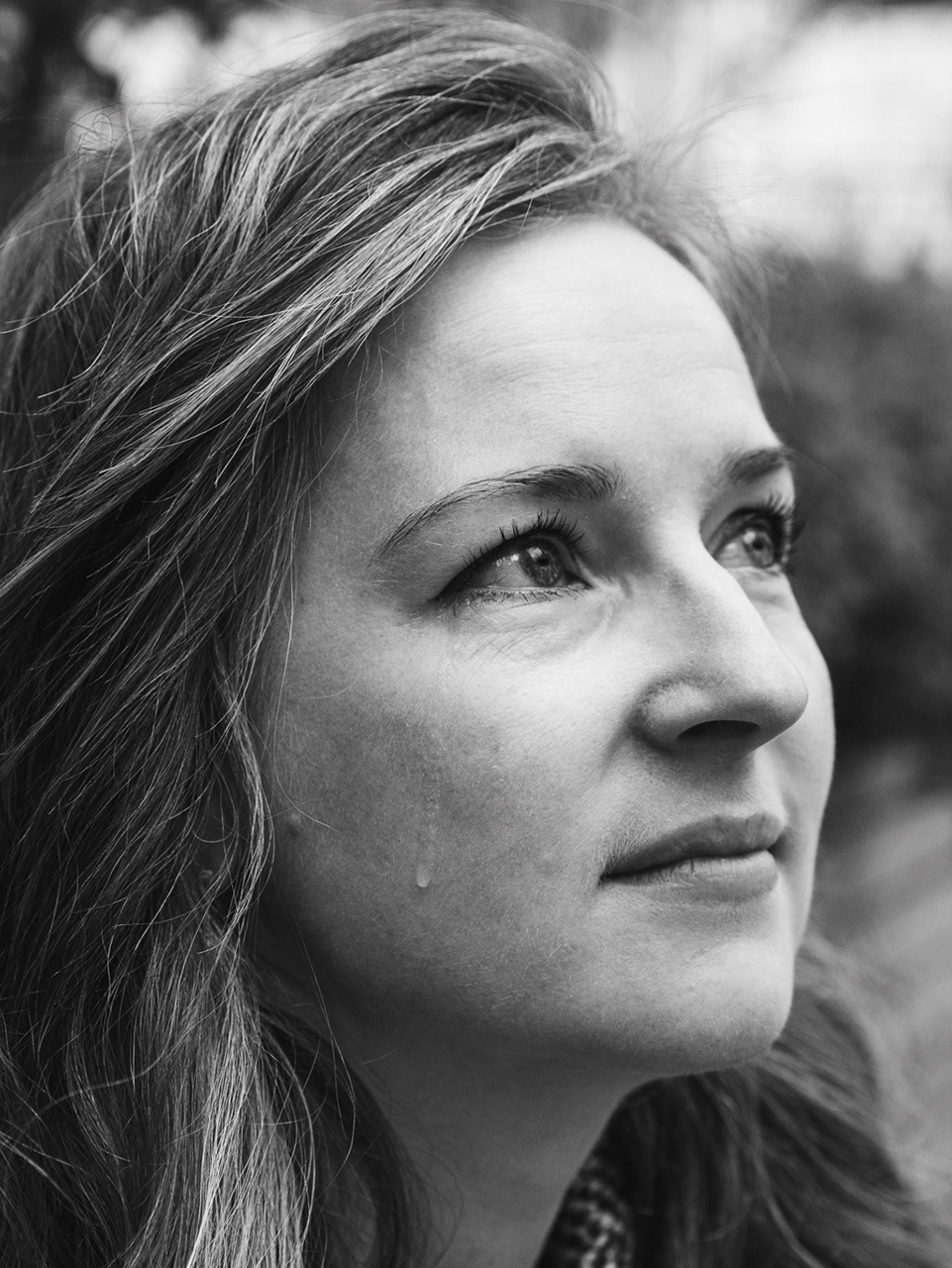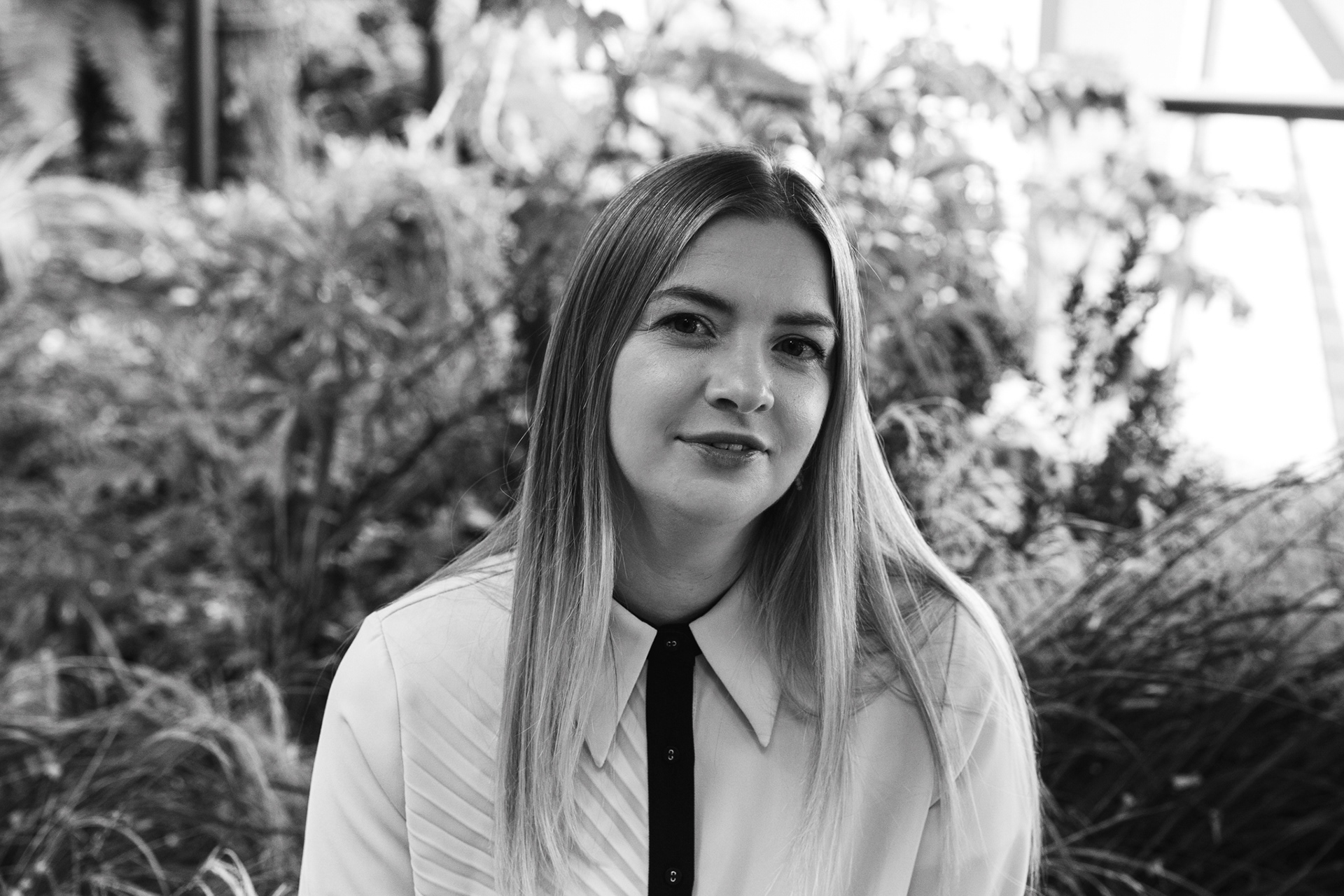
New Stability on the Ruins of the Old World
For Olga Reznikova, a native of Kyiv and a blogger who had spent years telling foreigners about Ukraine, the war did not come as a bolt from the blue. The sense of anxiety thickening in the air was almost physical. "I had a YouTube channel called 'Foreigners about Ukraine,' and everyone was constantly writing to me that the war was about to start," she recalls. "It had been building up so much since the end of January that I started thinking, maybe I should leave Kyiv."
Four days before the invasion, she, her husband, and their two young children left their beloved city for her parents' home in the Khmelnytskyi region. This decision, dictated by intuition, saved them from the chaos and horror of the first days in the capital. They met the morning of February 24th in the silence of a country house, a silence shattered by a phone call from her husband's brother abroad. "He said, 'What's happening over there, it's terrible'... And at that moment, I open my phone and see that our region had been bombed... and Kyiv, and everything in general."
The first reaction was shock, but not panic. They hadn't heard the explosions, which created an illusion of the catastrophe's distance. "I wasn't scared because I didn't hear the explosions, as I would have in Kyiv." They drove into town, bought groceries, and returned home to wait. But the Facebook news feed, filled with images of people fleeing, began to fray their nerves. "I started to think, maybe we should leave too, since everyone is leaving."
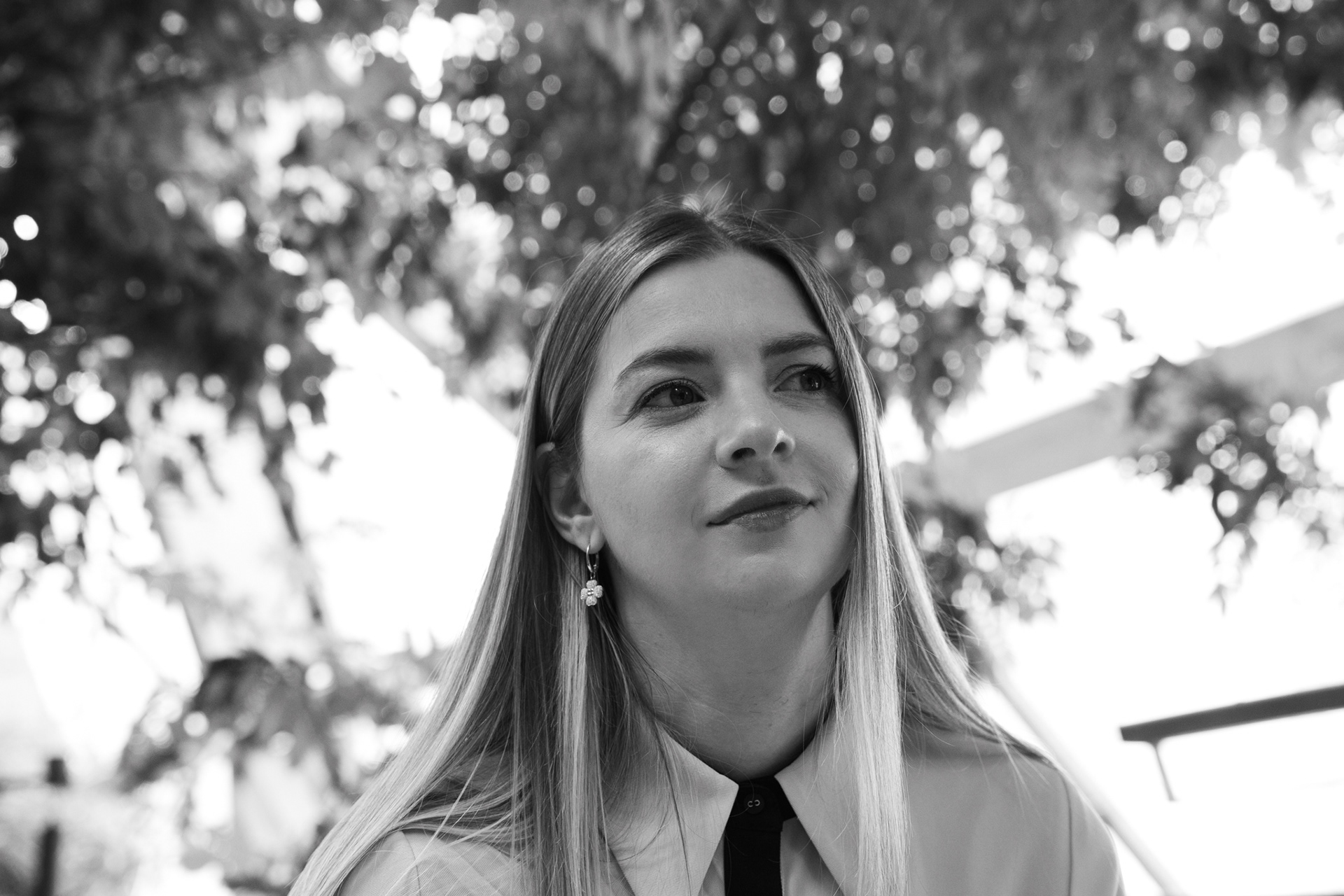
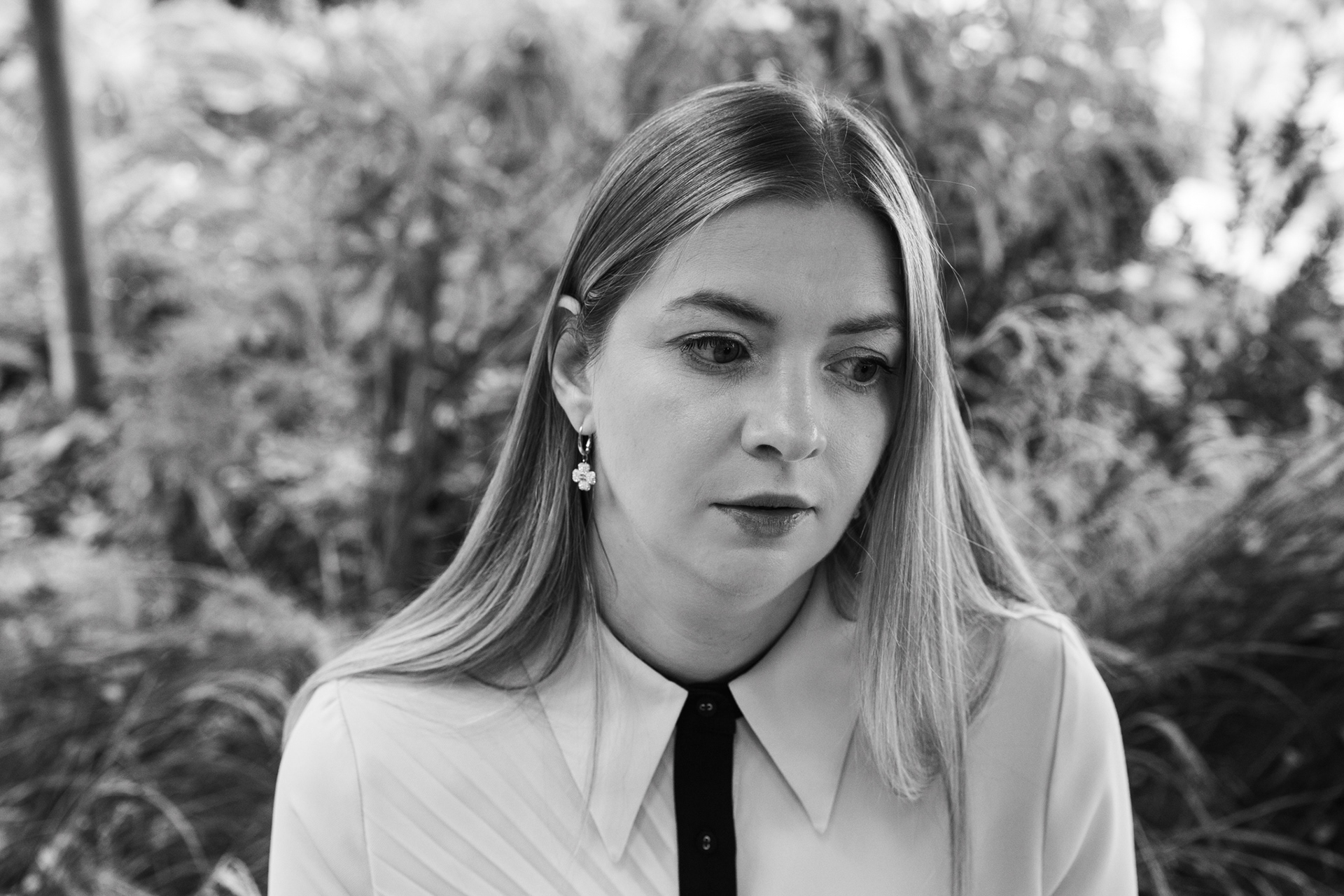
A Journey into the Unknown: Four Days at the Border
The decision was made. The next day, they set off for the Polish border via Krakovets. And it was there, in the miles-long traffic jam, that the scale of the tragedy became clear. "We were driving the last 8 kilometers before the border, and we were at a standstill for 4 days. And in that moment, yes, you start to feel that this is not just a small thing, that something terrible is happening."
Those four days became an endurance test at the limits of human capability. The internet was sporadic, and they lived in an information vacuum, inching their way towards safety. When they finally crossed the border, the first desire was simply to stop and breathe. They rented an apartment in Poland for a week, thinking it was temporary. "We thought it would be two weeks at most, and we would return because it would all be over."
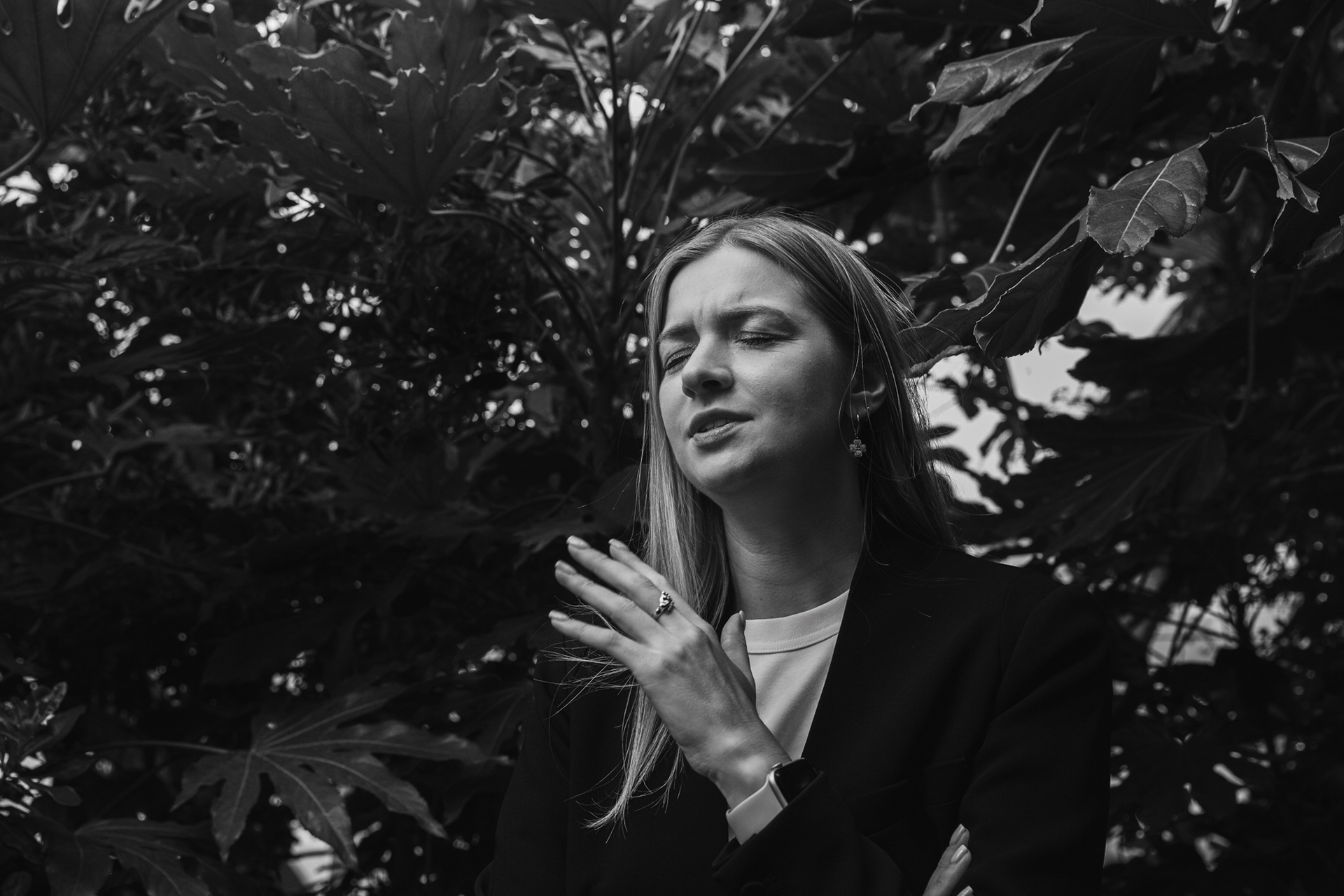
The Danish Experience: Bureaucracy and the Language Barrier
But the news grew worse. Housing in Poland became more expensive by the day, and staying there was unwise. Relatives in Denmark invited them to come, and the family set off again. Denmark greeted them with Ukrainian flags and the sympathy of ordinary people, but the state machinery proved to be cold and sluggish.
"From the state's side, everything was very bureaucratic, so bureaucratic that it really infuriated me at the beginning... We had no legal status; we were just tourists. And any psychological support for the children... they said, no, she has to go to school, and then the school will apply for a psychologist, but until she's in school, you can't do anything."
Even for money, getting simple services like eyeglass repair or a prescription was impossible without local documents. This system, where you are seemingly free but completely powerless, caused immense frustration. When a special law for Ukrainians was finally introduced, the conditions were harsh: mandatory language courses, acceptance of any job offered, and paid housing in converted hospital wards. "That's how they explained it all to us. You have to, you know, we'll send you somewhere to live, and wherever we send you, you have to go. Instead of a ward, you get two beds, for example, a shared toilet, and that's it. And a locker. And you have to pay for that," Olga recalls. It was then that the final realization hit: "We understood that we had a language barrier... if you want to find a job, you need to speak the local language."

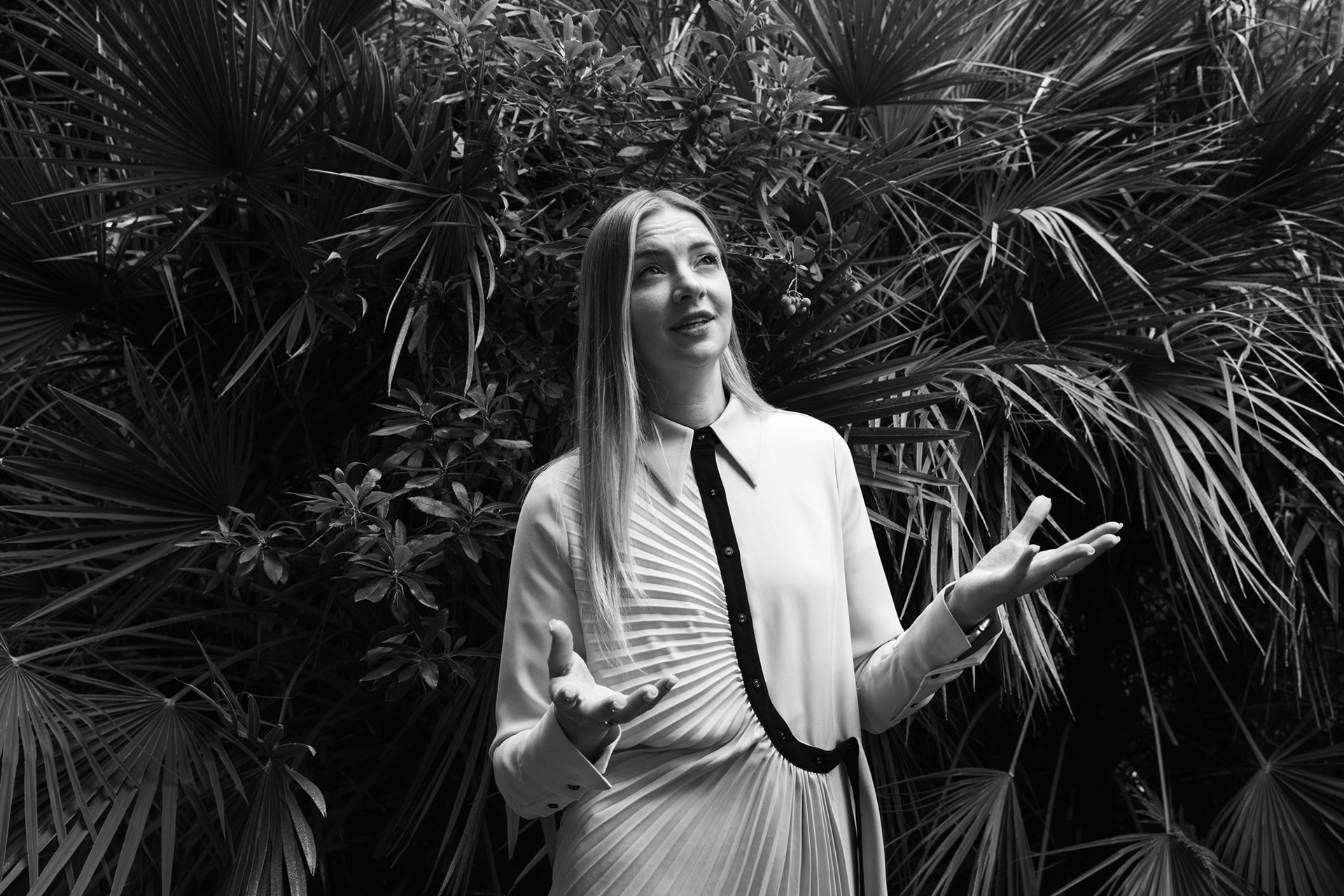
England: Contrasts, Support, and a New Life
Early in the war, an acquaintance in Britain had found them sponsors in Cambridge. While they waited for their visas in Denmark, this option became increasingly attractive. When the documents were ready, they left without hesitation. And here, a pleasant surprise awaited them.
"In Britain, it was great that everything could be done online... I had prepared myself for everything here to be extremely slow because everyone in Denmark told us not to go to Britain, that everything is worse there, everything is different. But it turned out not to be like that at all."
Within a month, they had all their documents sorted, and their eldest daughter was in school. Compared to the Danish bureaucracy, the British system seemed incredibly efficient. Their sponsors, an intelligent retired couple (she, a former editor-in-chief of a British medical journal; he, an Irishman), gave them an entire floor of their house and surrounded them with care. "We have maintained a good relationship with them; we are still in touch," says Olga.
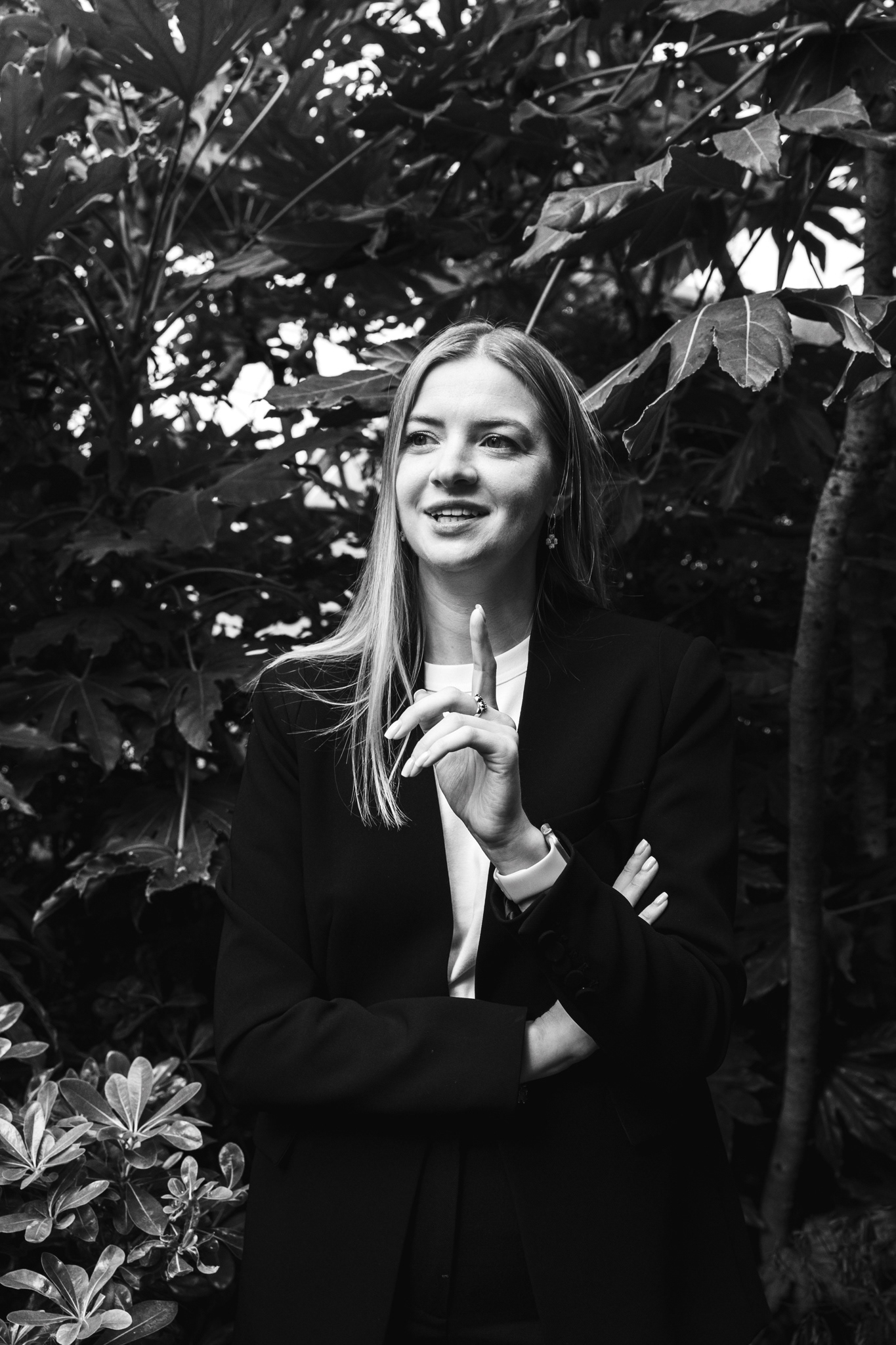
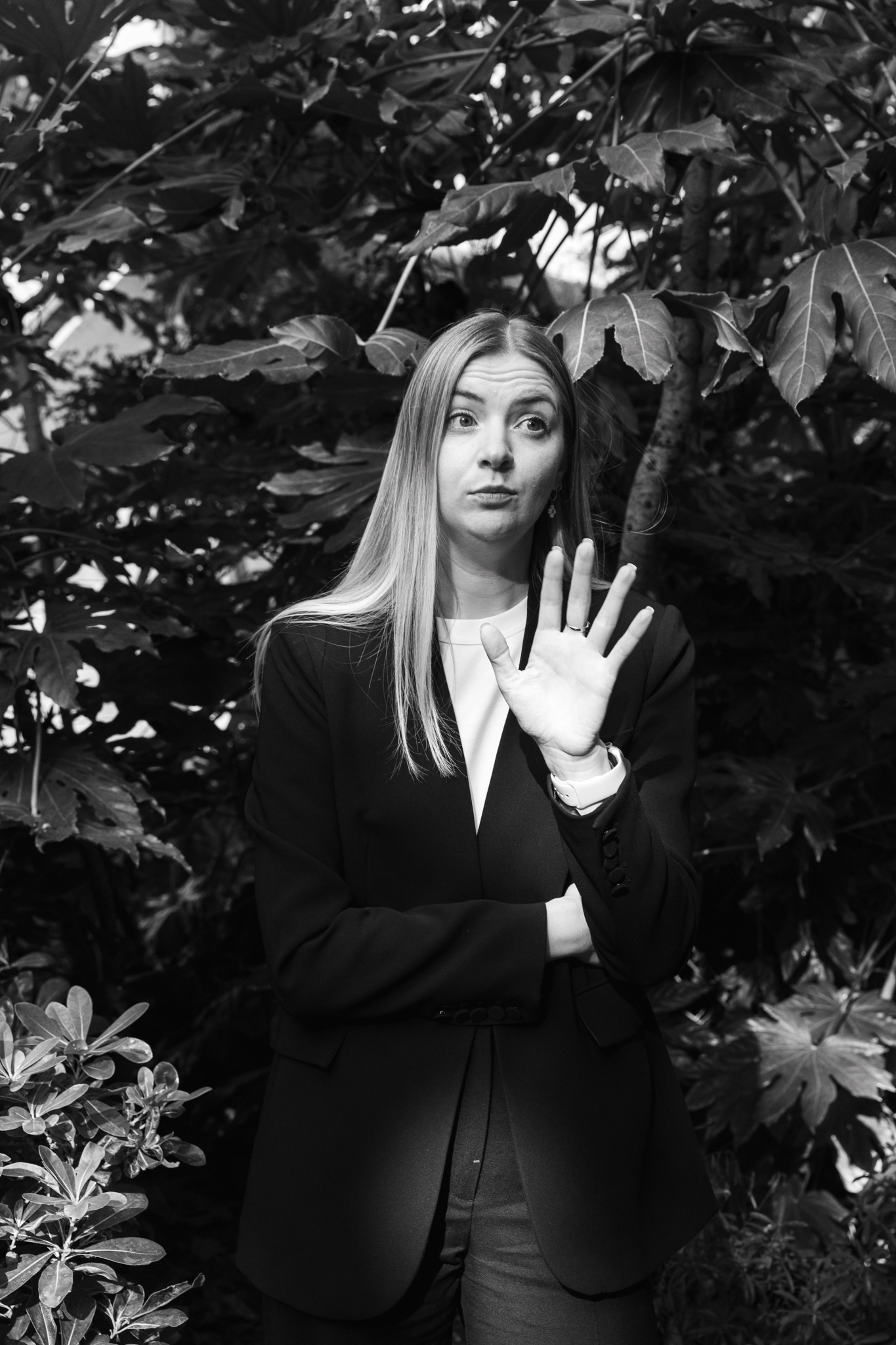
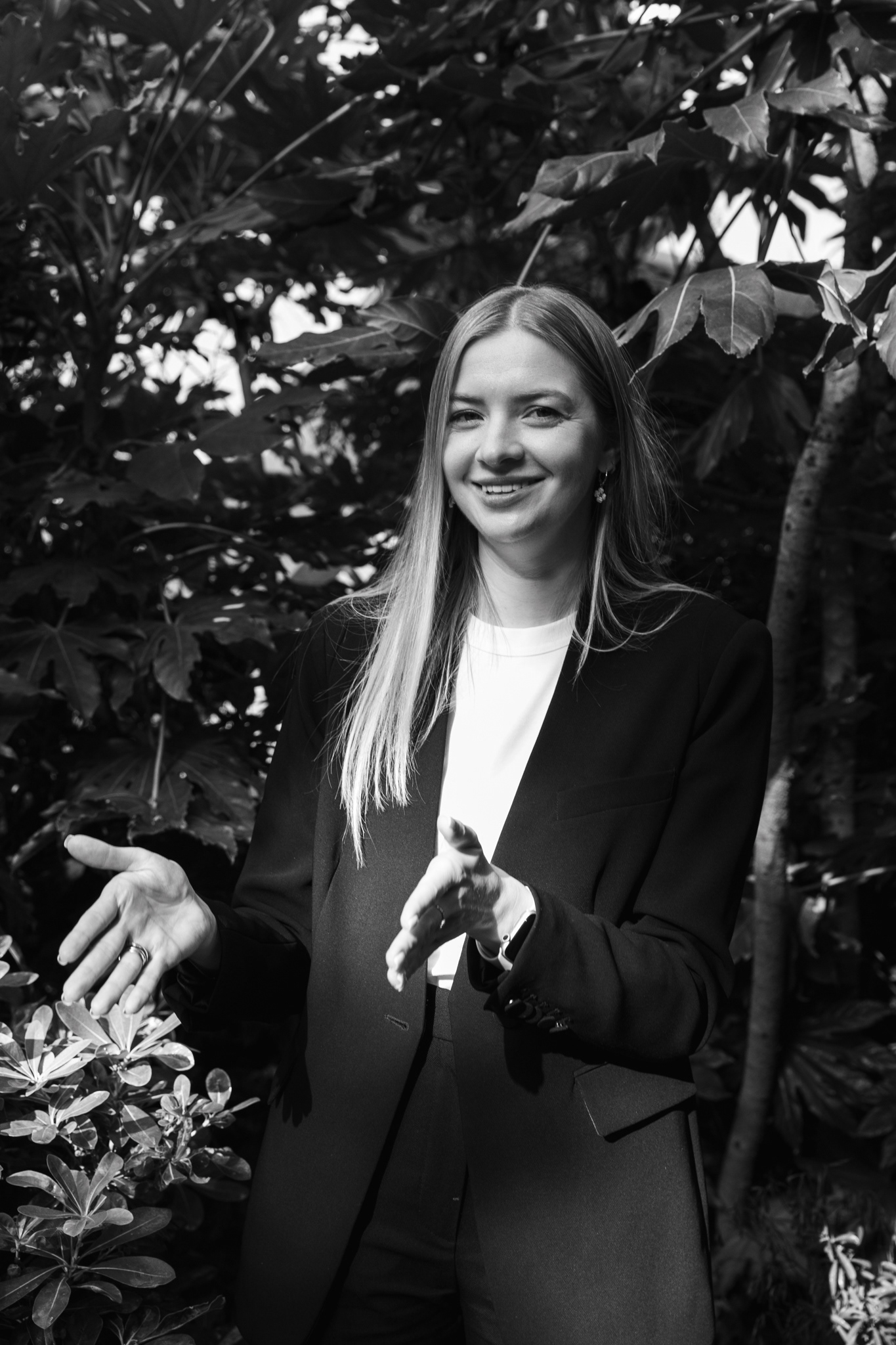
Shortly after arriving, she became pregnant with her third child. This defined her priorities for the near future—she focused on her family and setting up their new life. Giving birth in England became another positive experience, strikingly different from the one in Ukraine.
"In Ukraine, basically, no one touches you while you're having contractions. As soon as you start pushing, six people rush in... and they manage the whole thing. But here... you give birth practically on your own. They just took the baby at the very end. No one was managing the process."
She chose a home-style birth in a special center at the hospital, where everything was focused on the woman's comfort. "A very relaxed atmosphere... music... any light you want, dimmed... you can do whatever you want," she remembers. "I had a very fast recovery. The fastest of my three births."


Rebirth through Creativity and Business
Olga never stopped working. Her YouTube channel, previously aimed at foreigners, transformed. She grew tired of the constant immersion in negativity. "I had to find the most horrific stories... and present them to a foreign audience. And at some point, I just didn't want to do it anymore; well, I didn't want the negativity." She started sharing her experience of life in Britain, and it resonated hugely. "When people start writing and asking questions, they kind of guide you on what you need to write and talk about." Over time, her blog became the largest among Ukrainians in Britain, and this restored her sense of professional fulfillment.
"When you're out and about, everyone recognizes you, everyone knows you, everyone wants a photo. You understand that you've reached a certain level again."
This success inspired her to move forward. Intrigued by artificial intelligence, she took online courses at the business schools of Oxford and Imperial College London, as well as an in-person accelerator in Cambridge. This gave her not only knowledge but also confidence. "Oxford makes you think," she notes, comparing it to other institutions where the learning was simpler. She registered her own IT company to help Ukrainian businesses implement AI, with the prospect of entering the British market. "There is always much more trust in a company," she explains her choice, drawing on the knowledge gained in business school. "Especially if you have two founders. So I made my husband a co-founder."
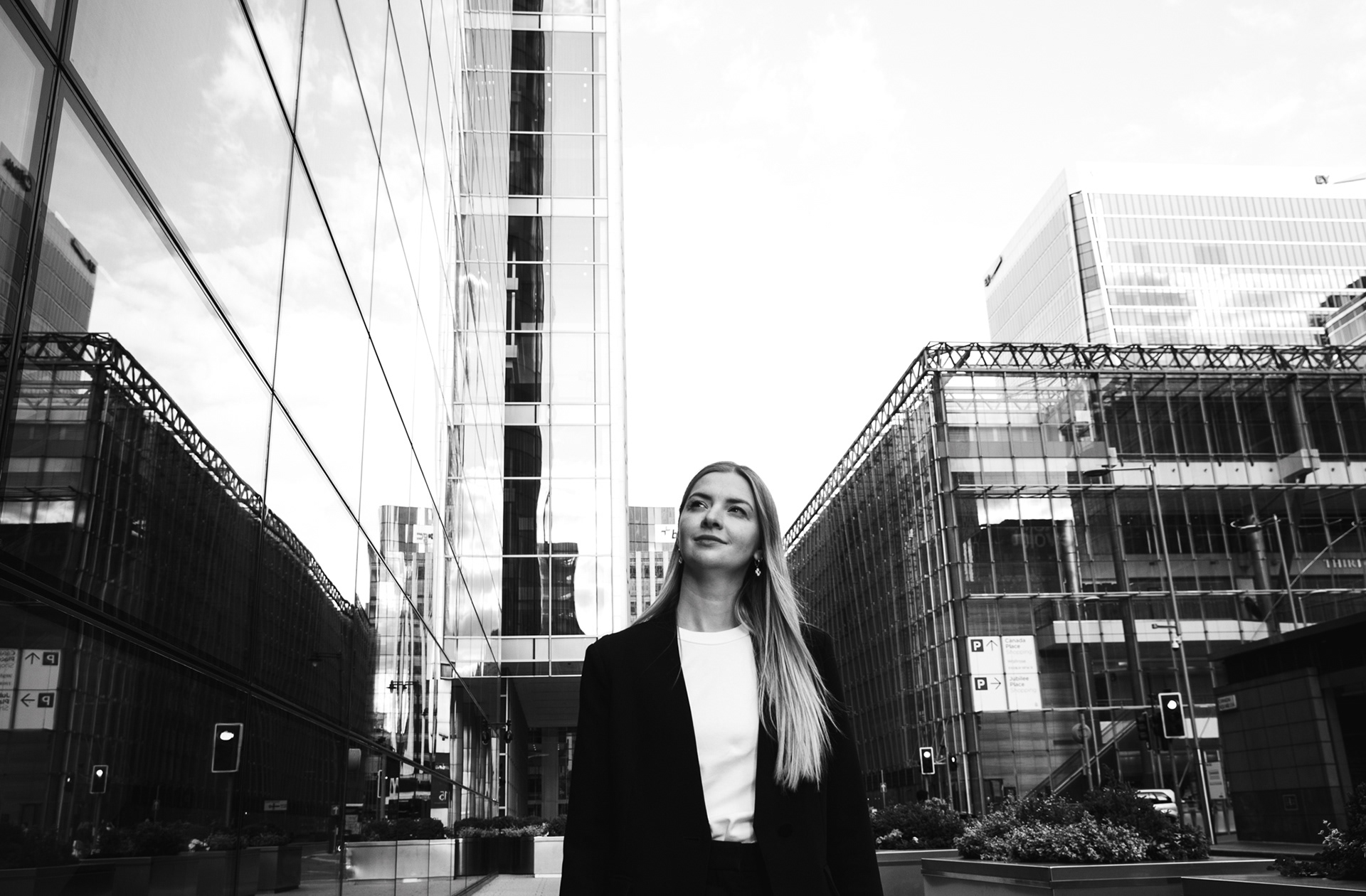
Adaptation and a Look to the Future
Today, Olga feels comfortable in England. She is struck by the country's multiculturalism, where no one makes you feel like an outsider. "In Britain, no one reminds me—I don't encounter anyone reminding me—that I came here, that I'm some foreigner and not a local, and that adds to the comfort."
Of course, she misses Ukraine. She liked her life there; she had just bought an apartment in a new residential complex in Kyiv. But recent news served as a cruel reminder of why returning is not yet possible. "The day before yesterday, our residential complex was hit," she says with pain. This fact transforms nostalgia into a sharp awareness of the fragility of what she left behind and the correctness of her choice.
She is a realist. "It seems to me that the world is so unstable right now that we can dream of returning to Ukraine, but we don't know when we will return, or if we will."
Olga's story is one of a woman who didn't wait, but acted. She used her intellect, experience, and openness to new things not just to adapt, but to succeed in a new country. She didn't lose herself but found new facets of her personality, turning forced emigration into a point of growth. Her journey is a vivid example of how resilience, proactivity, and the ability to learn allow one not just to survive, but to build a new, better future, wherever you may find yourself.
